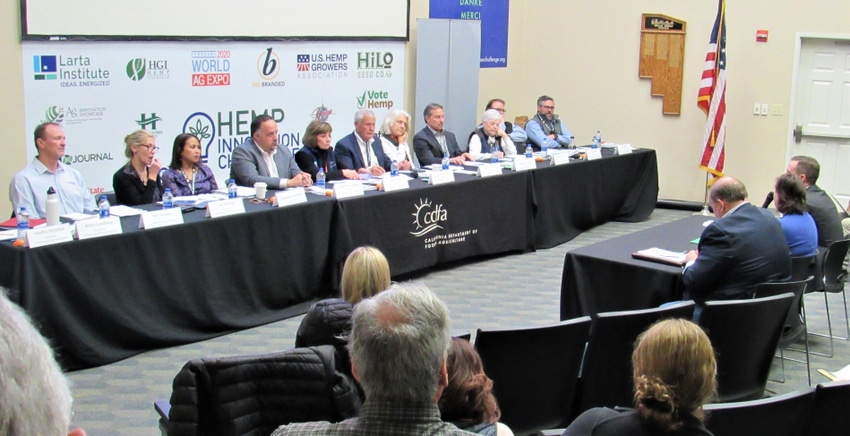
California's state agriculture agency is throwing cold water on talk of a two-year delay in implementation of Proposition 12, an animal-confinement measure passed by voters in 2018, as a new university study predicts that pork prices will rise as a result of the law.
Beginning Jan. 1, the measure will require farms to add space for certain farm animals, including breeding pigs, or mother sows. in a state Department of Food and Agriculture hearing on Aug. 27, the North American Meat Institute and other farm organizations called for a moratorium on enforcement to allow those subject to the law time to comply.
“Until final rules issue, affected companies are ‘on hold’ with respect to what they must do to comply with Prop. 12 to avoid the risk of criminal prosecution,” NAMI chief executive officer Mark Dopp told the board. "For that reason alone equity demands the California Department of Food and Agriculture (CDFA) issue an enforcement moratorium lasting at least 28 months after final rules are published.”
But such a delay isn't likely to happen, said Steve Lyle, CDFA's spokesman.
"CDFA does not have authority to change any of the deadlines set in statute," Lyle told Farm Press in an email.
The hearing came as University of California, Davis economists estimated on Aug. 27 that California pork consumers will lose $320 million per year (roughly $8 per person) from the market impacts of Prop. 12. California consumers will pay about 8% more for pork regulated under Prop. 12 and will consume around 6% less of that pork per year, according to the study.
Additional space
“The roughly 9% of North American sows affected will each get about 20% more housing space," noted coauthor Richard Sexton, a UC Davis professor of agricultural and resource economics. "But, the additional space will be for those sows that already have more space, not those confined in small individual stalls.”
The economists, who also included UC Agricultural Issues Center director Daniel Sumner and doctoral candidate Hanbin Lee, brushed aside ome pundits' warnings of upcoming bacon shortages and up to 60% higher pork prices.
Prop. 12 provisions require 24 square feet of moving room for each gestating sow. An estimated 99.8% of the pork consumed in California comes from out-of-state, creating a wide net of those impacted by the measure, which was approved overwhelmingly by voters.
The added costs of 20% more space for group-housed sows destined for California, plus the costs of segregation, product tracing and new labeling, will cause the cost of regulated pork products in California to rise by 25 cents per pound, the economists estimate. They don't expect the price of pork outside of California to be affected.
Critics of the new law have suffered a string of losses in court. In the latest, a federal judge in Iowa on Aug. 23 dismissed a lawsuit filed by the Iowa Pork Producers Association and three Iowa pork producers in a challenge against California regulators.
Republican senators from Iowa have proposed federal legislation to stop implementation of Prop. 12, fearing economic damage to their hog farmers, but the UC economists believe federal action is unlikely
About the Author(s)
You May Also Like






